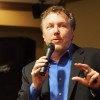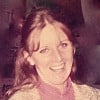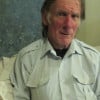When writing a book, what elements need to be included before moving onto anothe
When writing a book, what elements need to be included before moving onto another chapter
What are the main points that need to be addressed in each chapter.- Sophia Angeliqueposted 14 years ago
0
Good grammar, nice flow, and, of course, a good story. I have a hub for serious writers. This is not the kind of information you get when going on writing courses; I'm not quite sure why. You might find it useful.
http://spiceofwriting.blogspot.com/
My author website is here.
http://bestebookstories.blogspot.com/ When I wrote my book my editor advised me just to write and not edit as I was writing. A good editor will put your words into chapters and your chapters into books....
I assume you are speaking of a first draft. Each writer must find what works best for them. For me, writing a one or two sentence description of the scenes I want in the book comes first. Then I break the scenes down into bite sized pieces that can be written in a couple thousand words or less. Basically this is an outline. Others writers do the same thing when they set up their outlines. I prefer scenes because that's how I see my stories most often.
Once the 'outline' is set, i strongly advocate not writing the book linearly. In other words, do not begin with chapter one followed by chapter two, followed by chapter three, etc. My feeling is that a writer will get too predictable and is not as willing to go off the outline as much. The outline is a guide, not a written in stone path.
Write the book organically. Pick the chapter or scene you feel most compelled to write at that moment. Hop around. This gives you many varied looks at your book and often allows you to go directions you may never have thought of otherwise.
The MOST IMPORTANT thing to do is kill the critic. Do not allow yourself to rewrite, edit or do any detail work until you get the first draft done. If you write a chapter in your first draft today, the only thing you are responsible for is updating your outline to reflect any twists or wrinkles you may have added. To feel like you must have a tidy, complete chapter before you move on will stymy creativity and bog down the process of writing.
That's how it works for me. I currently have five books in print, two unpublished books and three books in progress. Just remember, you must choose that 'system' that works best for you. One of the beauties of writing is the 'individual' nature of the craft. Each author tends to have his/her own quirks. Most writers I come across who struggle are usually attempting to make each chapter perfect before they move on. This is far too rigid for most creative people.Years ago before writing my first novel, I as asking the same questions. So I took a favorite best-seller, The Shining - and literally counted words, outlined elements etc. I used other books as well and I found that the average chapter is about 5000 words. I found that generally when the writer heads in a different direction, changes the scene slightly, a new chapter would begin.
A lot of this is subjective and no hard and fast rules but these things were GENERALLY the case. I also found a small romance novel runs about 150, 000 words and a novel that is 78,000 is about 185 pages.
Odd little facts but they truly helped me get started. Questions I had the don't seem important now, were how long does it take for a character to get across a room, how much description do I write for the scene. It is hard because you can see it in your head but have to remember the reader does not have a preconceived picture.
good luck--it is all great fun!I think it depends on the story you are writing. You can't show all your cards at once. You have to develop the characters throughout the book. It's important not to stray from the plot, but subplots must appear frequently enough to keep the reader alert to them, and of course they too must evolve as the book progresses. Do you write outlines or synopsis of your work before hand?
I found the previous answers to be excellent and very helpful.
I would like clarification of your question. By "a book" do you mean a book of fiction (a novel) or do you mean a nonfiction book?
The main points of a fiction chapter are: 1) what happened 2) to whom 3) why 4) where 5) how.
Simultaneously, the main points are 1) the set-up (tell or show the initial situation), 2) the new development causing objective and/or subjective conflict, and 3) the result leading to the next chapter.
As in a fractal, the whole and each chapter have this same structure. As in soccer, each chapter kicks the ball (moves the story) toward or to the goal (the climax and ending).
Leave or take out what is not the story. Leave or take out or revise what impedes the flow of the story.
Google on
logline OR "log line"
and then write a logline for the novel to be and for each chapter to be, for your own use. The online info on loglines will suggest what to put into the one or two sentences to describe a chapter mentioned by Michael Ray King.
If you are writing a nonfiction book, then what sort of nonfiction book is it? Like, will it be narrative nonfiction? Or?One thing you can do is make the next chapter follow on or else your readers could lose the thread. It's touch and go, but after a while you get the grasp of where to leave off at the end of the previous chapter, not to say too much but don't assume your readers can read your mind. Help them over the hurdle but let them do some of the work themselves!
Generally my chapters take up 30-odd pages, with narrative gaps. I think that allows the reader to put the book down now and then and pick up easily from where they left off. It's like picking your way through a meal. Make the courses too much to get through and the going gets hard. Make it easier to put down the cutlery between mouthfuls.
I edited RAVENFEAST twice (and I still left typos in!), its follow-up OVERTHROWN has been edited twice as well.Writing a book is complicated and is different from writing a short story. In addition to the main characters, a setting and a plot, the story got to have an interest that would prove worthiness of getting published. I suggest that you research online more about writing a book and then use LuLu.com to self publish an ebook. ebooks are gaining popularity because of the advent of the Amazon Kindle and the Barnes and Noble Nook; both ebook reading technologies. Also read books offline about how to write a book and get to writing.
If you're moving to the next chapter, it should follow THE PLAN.
I'm assuming you have some idea what the book is about.
THE PLAN
Depending on the genre, divide the accepted word count into workable chapters. Each chapter should have a minimum word count. Anything above is always easy to edit out
If its character driven literary fiction chapter 1 should introduce WHO WHERE WHAT WHEN .
I wrote my first novel and my first short story following this plan.
The rest is history.
Related Discussions
- 40
I want to write a book... but where/how do I begin?
by Jeff Davis 15 years ago
This question is directed to anyone who has written, or is currently in the process of writing a book. Can I pick your brain? I am simply seeking some advice/tips from you hub authors out there who are also book authors. ie: Where did your book idea originate? How much time did you devote to...
- 10
The story I'm writing has no outline, but is keeping me entertained. Am I OK?
by M.C. Bellamy 12 years ago
The story I'm writing has no outline, but is keeping me entertained. Am I OK?
- 19
Is a story board essential for a good story?
by Sammy 15 years ago
Every time I start a new story, I always attempt to create a story board so I dont forget small details and characteristics of the main story line, yet I never end up doing it.It it an essential part of writing a story??
- 974
Challenge Writing Skills - Write A Short Story in Less Than Ten Words
by BaliMermaid 12 years ago
The first part of this challenge would take place within the forum. Hubbers can vote on which entry is the best with the normal vote up, vote down system in place.Once a winner, or perhaps winners are chosen the challenge changes and becomes a contest / challenge to write the best explanation to...
- 12
How do you write your books?
by Leah Lenau 11 years ago
How do you write your books?From my experience, everyone has a different writing method. Is there a certain method you use? Do you share a method with another writer? Just scribble it all down or organize everything? Drawings of your characters, maps of locations, a time line on the wall to help...
- 18
If you are writing stories / novels, is it better to write in chronological orde
by Ceres Schwarz 12 years ago
If you are writing stories / novels, is it better to write in chronological order or out of order?Chronological order - chapter by chapter, scene by scene.Out of order - chapter 8, chapter 1, chapter 20, etc.Which is the better method? And what do you think are the advantages and disadvantages of...















